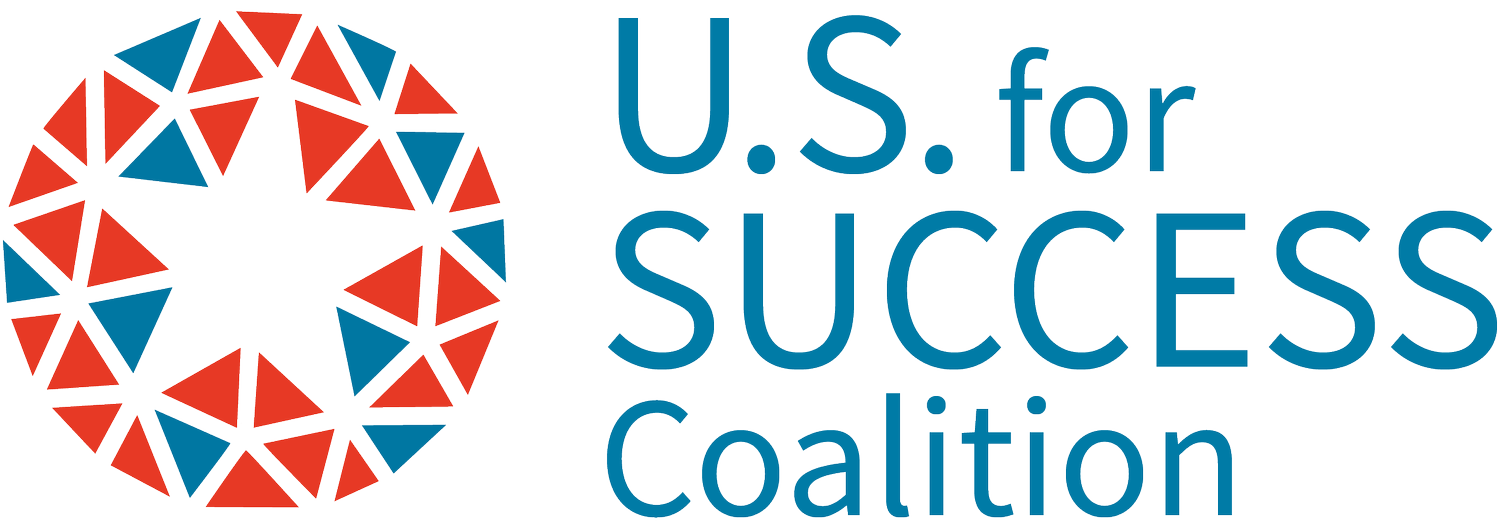U.S. for Success Coalition Speaks Out: Targeting International Students Undermines U.S. Economic Strength and Global Competitiveness
Washington, D.C. – (April 10, 2025) – In response to the Trump administration’s recent visa and immigration policy actions, the U.S. for Success Coalition is calling on Congress to convey to the Trump administration that welcoming international students and scholars to study and succeed here should be a national priority. Country-specific restrictions on visa issuance, increased scrutiny of an already rigorous student visa application process, and sudden revocation of hundreds of student visas without transparency and due process threaten the many contributions international students and scholars make to U.S. students and businesses.
As articulated below by members of the coalition’s executive committee, international students generate billions of dollars in economic benefits for American communities, strengthen America's global leadership in science, technology and innovation, and enhance the United States’ long-term national prosperity, safety, and security:
“International students fuel American innovation, foster cultural exchange, and enhance our national security by deepening global understanding,” said Fanta Aw, Executive Director and CEO of NAFSA: Association of International Educators. “It is in our national interest to ensure they can continue contributing to our nation’s prosperity and security. International students are the most tracked and vetted visitors to this country. Deterring international students from choosing the United States will not make us safer but will certainly deprive us of global talent at a time when competition for these students is increasing around the world.”
"It is crucial for the United States to maintain its leadership in attracting top global talent," said Miriam Feldblum, President and CEO of the Presidents’ Alliance on Higher Education and Immigration. "Recent immigration policies and actions threaten the integrity of U.S. colleges and universities, which base their student and scholar selection on merit. Restricting international talent will have far-reaching consequences, impacting our economy, academic institutions, and communities, potentially driving up tuition rates and disrupting vital academic programs."
"International students are vital to America's national interests, enhancing learning and collaboration, contributing tremendously to our economy, and strengthening America's global competitiveness,” said Tom Dretler, CEO of Shorelight. “Countries that double down on their commitment to attracting, educating, and retaining global talent will reap the benefits of those efforts for decades to come. We should be growing, not cutting off, our talent pipeline of the best and brightest students from across the world."
Urging Congress to Act
The U.S. for Success Coalition calls on Congress to press the administration to avoid immigration actions and travel restrictions that jeopardize America’s global strength in attracting the world’s best and brightest to U.S. colleges and universities. New survey results show that interest in U.S. postgraduate education has plunged 40 percent since January 2025 while there is rising interest in Germany, France, and China as a study destination.
The Coalition invites students and leaders from all sectors--including higher education, foreign policy, and business--to reach out to their members of Congress with the message that the administration should make it a national priority to welcome international students and scholars to study and succeed here.
###
ABOUT THE U.S. FOR SUCCESS COALITION
The U.S. for Success coalition is a multi-sector effort that aims to foster international student success in the United States through a coordinated national effort. We all succeed when the U.S. can compete and cooperate effectively by welcoming international students to the nation’s campuses and by facilitating pathways for them to apply their knowledge and skills in local economies upon graduation. The coalition works in partnership with the U.S. government, higher education institutions, the business sector, and other key partners to foster supportive federal policies and practices.
